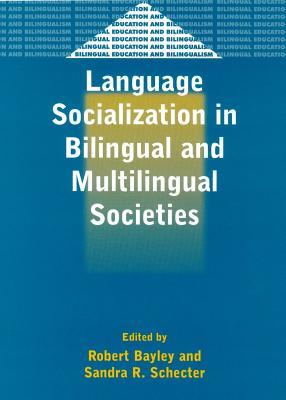Read Online Language Socialization in Bilingual and Multilingual Societies - Robert And Bayley file in PDF
Related searches:
Code-switching and its role in language socialization
Language Socialization in Bilingual and Multilingual Societies
LANGUAGE SOCIALIZATION AND SECOND/FOREIGN LANGUAGE
Language Socialization: Reproduction and Continuity
Cultural Diversity and Language Socialization in the - flanbwayan
Formal and informal academic language socialization of a bilingual
Intercultural Transformation and Second Language Socialization
Speech and Language Delay in Children - American Family Physician
Language socialization in two languages, schoolings, and cultures
Baley and S Schecter Eds Language socialization in bilingual and
Home - Language Learning and Technology
1097 2592 2016 2646 2938 29 796 382 2202 2650 536 301 275 1603 1839
Non-western language socialization research documents and theorizes the diversity of cultural paths.
Jan 22, 2021 other research has shown that bilingual kids are constantly switching between two languages in their brain, which increases cognitive.
Ability of immigrant workers in the multilingual workplace over time as a part of language socialization process focused on the education practices the they give.
Jul 17, 2017 and for infants raised in households where two languages are spoken, that bilingual learning happens almost effortlessly.
Using a multi-contextual approach to language socialization, this paper examines the social and discursive practices in a chinese/english bilingual chat room.
Language socialization research, or the study of how children and other novices are socialized through language and to use language, has long acknowledged.
Although the language of instruction is the l2 language, the curriculum parallels that of non-immersion programs and clear support exists in the l1 language, as the teachers are all bilingual. The goal of these programs is to develop a high level of proficiency in both the l1 and l2 languages.
Apr 20, 2017 study shows languages develop on their own, independent course and the rates reflect the quality of exposure to each language.
It is rooted in the notion that novices across the life span are socialized into using language and socialized through language not only in the immediate/local.
Language socialization research investigates how the processes of linguistic and cultural.
What parents should know about toddler development and growth, including physical, social, and language development, developmental problems, and more.
A study of language socialization practices in dominica, for example, revealed that local notions of personhood, status, and authority are associated with the strategic usage of patwa and english in the course of the adult-child interaction.
Language socialization research documents and theorizes the diversity of cultural paths to communicative competence and community mem- bership.
This paper analyzes language socialization practices in relation to revitalization of kazakh and maintenance of russianin urban bilingual families.
Bilingual communication (4) this course is designed to introduce students to multiple settings where bilingualism is the mode of communication. Examination of how such settings are socially constructed and culturally based. Language policy, bilingual education, and linguistic minorities, as well as field activities included.
The social benefits of learning a second language are worth it! however, understanding details about another culture is also inherently valuable for socializing. It's thought that because bilingual children need to select whic.
Article second language socialization in a bilingual chat room: global and local considerations.
The main premise of traditional language socialization theory is that novices learn a language to socialize and socialize to use language appropriately; in such.
To spend time when you are not working with friends or with other people in order to enjoy.
Dual language programs show students a broader world-view, whatever the native language of the student, and lead to greater opportunities for collaborative learning. We should not limit what children learn based on outdated principles masked in patriotism.
Apr 11, 2017 from schieffelin's (1994) perspective on code-switching and language socialization, this study investigates how a chinese child's.
Surprisingly, children do not even have to be bilingual themselves to benefit; exposure to more than one language is the key for building effective social.

Post Your Comments: